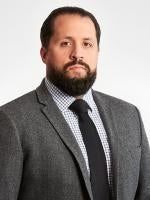Recently, the Federal Communications Commission (FCC) denied the Mortgage Bankers Association’s (MBA’s) petition seeking an exemption from the Telephone Consumer Protection Act’s (TCPA’s) prior-express-consent requirement for mortgage servicing calls to wireless telephone numbers. According to 47 U.S.C. § 227(b)(1) and (2)(C) of the TCPA and the FCC’s rules, robocalls to wireless telephone numbers and other specified recipients are prohibited except when made: (1) for an emergency purpose; (2) solely to collect a “debt owed to or guaranteed by the United States”; (3) with the prior express consent of the called party; or (4) pursuant to a Commission-granted exemption.
In June 2016, the MBA sought a narrow exemption from the FCC that would permit mortgage servicers to make non-telemarketing residential mortgage servicing calls to wireless telephone numbers. In its petition, the MBA argued that mortgage servicers needed such an exemption to be able to contact borrowers for various matters, including mortgage defaults. More specifically, the MBA reasoned that it was important for mortgage servicers to be able to speak with delinquent borrowers as early as possible to discuss various options. According to the MBA, because mortgage servicing calls were required under both federal and state laws and, given the volume of mortgage borrowers and the loan term of a typical mortgage, an exemption was necessary for mortgage servicers to effectively communicate with their customers. Thus, in light of the need to contact such delinquent borrowers, the MBA argued that the benefits of being able to call wireless telephone numbers without prior express consent far outweighed any potential privacy interests.
The FCC was not persuaded and denied the petition for the exemption. In the past, the FCC had granted “free-to-end-user exemptions” to the general prohibition on calls to wireless numbers pursuant to § 227(b)(2)(C) in limited circumstances. In granting such “free-to-end-user exemptions” in the past, the FCC had always analyzed three factors: (1) whether the petitioner was clear that the messages would be free to the end user; (2) whether the messages were time-sensitive or there was some other compelling public interest that supports timely receipt of these calls; and (3) whether the caller could apply conditions to the exemption to preserve consumer privacy interests. Applying those factors to the MBA’s petition, the FCC determined that (1) the MBA had not demonstrated it could make the calls to wireless telephone numbers free to the end user, and (2) the public interest in, and the need for the timely delivery of, the mortgage servicer calls described by the MBA did not justify setting aside the privacy interests of called parties. The FCC reasoned that while the mortgage servicer calls may be beneficial and desired by some consumers, mortgage servicers were free to autodial consumers without an exemption by simply relying on the prior express consent a consumer provides when including their wireless phone number on a mortgage application, or the servicer could make a call without using an autodialer.
The FCC also rejected the MBA's attempt to expand on the recently created exemption for calls regarding the collection of a debt owed to or guaranteed by the United States. The FCC found if Congress "had intended the exception to apply universally, regardless of who owned or guaranteed a debt, it easily could have done so." This position goes against the recommendation of numerous governmental entities, such as the Federal Housing Finance Agency, to exempt mortgage servicers of residential mortgage loans from TCPA requirements.
This ruling emphasizes the need for mortgage servicers to obtain prior express consent from borrowers and confirms that the TCPA will continue to present an obstacle for financial institutions looking to communicate with borrowers.





 />i
/>i

